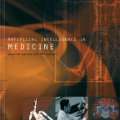In contrast to the rapid digitalization of several industries, agriculture suffers from low adoption of climate-smart farming tools. Even though AI-driven digital agriculture can offer high-performing predictive functionalities, it lacks tangible quantitative evidence on its benefits to the farmers. Field experiments can derive such evidence, but are often costly and time consuming. To this end, we propose an observational causal inference framework for the empirical evaluation of the impact of digital tools on target farm performance indicators. This way, we can increase farmers' trust by enhancing the transparency of the digital agriculture market, and in turn accelerate the adoption of technologies that aim to increase productivity and secure a sustainable and resilient agriculture against a changing climate. As a case study, we perform an empirical evaluation of a recommendation system for optimal cotton sowing, which was used by a farmers' cooperative during the growing season of 2021. We leverage agricultural knowledge to develop a causal graph of the farm system, we use the back-door criterion to identify the impact of recommendations on the yield and subsequently estimate it using several methods on observational data. The results show that a field sown according to our recommendations enjoyed a significant increase in yield (12% to 17%).
翻译:与若干产业的快速数字化相比,农业受到气候智能型农作工具的采用率低的影响。尽管AI驱动的数字农业可以提供高绩效的预测功能,但缺乏关于农业对农民好处的量化实证。实地实验可以得出这种证据,但往往成本高昂和耗时。为此,我们提出一个观察性因果推论框架,用于对数字工具对目标农业绩效指标的影响进行经验性评估。这样,我们就可以通过提高数字农业市场的透明度来增加农民的信任,从而加快采用旨在提高生产率和确保可持续和有复原力的农业免受气候变化影响的技术。作为案例研究,我们对农民合作社在2021年生长季节使用的最佳棉花播种建议系统进行了实证性评估。我们利用农业知识来绘制农业系统因果图,我们用后门标准来确定建议对产量的影响,然后用几种观察数据来估计。结果显示,根据我们的建议,一个农田的收成率显著提高(12%至17% )。



